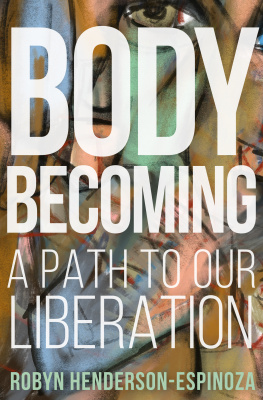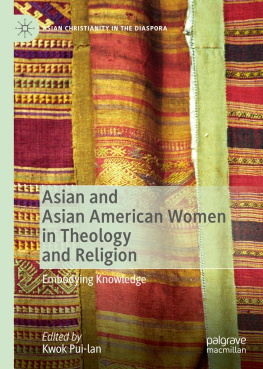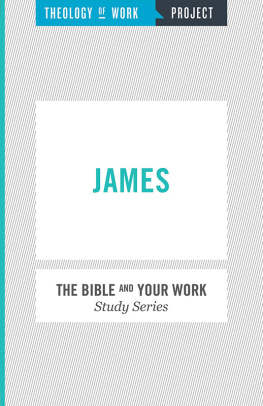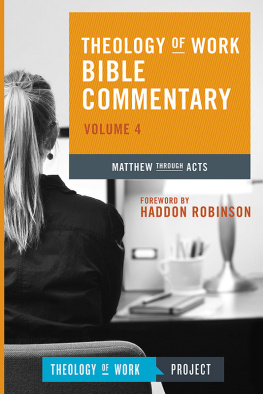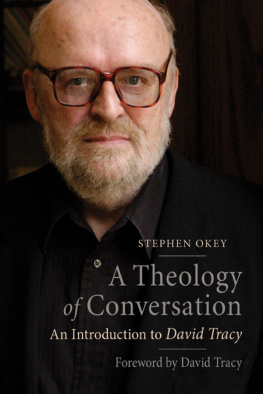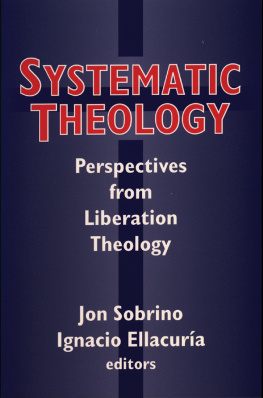Copyright 2019 Fortress Press, an imprint of 1517 Media. All rights reserved. Except for brief quotations in critical articles or reviews, no part of this book may be reproduced in any manner without prior written permission from the publisher. Email copyright@1517.media or write to Permissions, Fortress Press, PO Box 1209, Minneapolis, MN 55440-1209.
The paper used in this publication meets the minimum requirements of American National Standard for Information Sciences Permanence of Paper for Printed Library Materials, ANSI Z329.48-1984.
Manufactured in the U.S.A.
In Activist Theology, Robyn Henderson-Espinoza explores neither a theology meant for activists nor merely the theology of activists, but rather invites readers into a way of doing theology that is itself active and transformative, both for those engaged in it and for the worlds in which they live: There is no theology without activism, and there is no activist without theology. It is a theology lived out in the midst of the wounds inflicted by the disruptions and ruptures of systemic violence, and thus marked by lament and even despair, but also traversed by hope. Ignatian spirituality often speaks of a way of being in the world that is simultaneously contemplative and active or, said otherwise, contemplative while active. Jesuit theologians in Central America such as Ignacio Ellacura and Jon Sobrino have further contextualized and sharpened this motto, so as to emphasize that we are to be contemplative in action for justice (contemplativos y contemplativas en la accin por la justicia). This book traces out some of the contours for a way of theological contemplation in action and of theological action in contemplationan activist theology that is deeply aware of the Holy both within and beyond human lives and that is constantly nurtured by that awareness.
Such an activist theology is a theology of the gerund: it is active by way of affirming, dismantling, storytelling, restorying, healing, breathing, and reorienting. It works at tearing down but also, simultaneously, at building up. It is continually on the way, desirous of taking smalland sometimes largesteps against destructiveness. Translating and bridging are at the heart of the project. As Robyn puts it, I use the term activist theology to describe my work of translating theory to action and theology to practice. Significantly, the meaning of activist theology is never defined normatively in the book but rather is gestured at constantly through circumlocutions, storytelling, poetic reason, and the invitation to enter into a movement of becoming that spirals toward justice.
Some of the theology in this book is explicit, while other theological dimensions remain implicit yet no less present. One sees this, for example, in what theology traditionally calls Christology and pneumatologyworking out the implications of faith in Christ and in the Holy Spirit respectively. The former is addressed explicitly, and the latter less so, yet both are present transversally in the task of activist theology as envisioned by Robyn. Jesusthe brown Palestinian Jew of the gospels, in contradistinction to the toxic white Jesus of US white nationalismwalks through the book, inviting us quite insistently to follow in the way of radical justice and transformation. By contrast, there is little explicit talk about the Holy Spirit, yet we find many mentions of spirituality, a strong sense of God as the Moving Wind who can be called upon, and a resilient conviction throughout that the Divine is present and accessible to us in meaningful ways: God is in the struggle; God is in the change that is becoming.
The hope that gives meaning to eschatology (another traditional locus or place of theology) pulses throughout the book as well, as does ecclesiology (reflection upon the meaning of church). Activist theology is imagined and modeled as a hope-inducing, hope-giving, hope-refilling endeavor that is in a frank and dialectical relationship with lament but is not smothered by despair. Thus, though the church often disappoints, and indeed has too often been complicit with injustice or indifference, church communities are not discarded as spaces for the practice of hope-inducing activist theologies, though they cannot and should not subsume or colonize an activist theology in their self-interest as institutions. A key ecclesiological question of activist theology therefore becomes: How are queer bodies, bodies of color, and/or queer bodies of color treated in this space? A corollary of this question is the profound insight that the struggle to be fully human as a queer person is the work of all of humanity. Existential and survival questions that in one sense arise out of our particularities (for example, being Latinx, queer, and biracial) are shown to be deeply important at the level of universality.
An activist theology as worked out in the book neither discards the work of the church in history nor is limited to it; it neither forgets the traditional notion of theology as faith seeking understanding, nor does it get caught up in worries about faith or a lack thereof. It engages movement work without idealizing it. Neither does it abandon interest in high theory or other tools of academic work. Rather, it weaves imaginatively through and around the movement, the academy, and the church, learning from all of them, limited to none of them, attentive to the material consequences of their logic, committed to divine doubt, to militant peacemaking and to embodying in concrete and resilient ways the wisdom of the traditions and the stories of Jesus.
One of the central contributions of the book is that it issues a call for conversion and transformation. Robyn models the process of bracing self-examination that is necessary in order for our lives not only to involve deep self-knowledge but also to explore ways of being in the world that are life-giving and fruitful. One key question posed several times is: Am I a revolutionary or a charlatan? It is a central question for the spiritual discernment of those of us who think we are at least somewhat counter-hegemonic in our way of being in the world. Is this really the case? Are we just hearers (or maybe speakers) of words of transformation but not doersand therefore simply fooling ourselves (James 1:22)? In other words, So what? This book honestly, grippingly, and lovingly helps us grapple with such questions, in the light of the stories and struggles of our own lives and those of the communities we are called to love.
Nancy Elizabeth Bedford
Evanston, October 6, 2018


